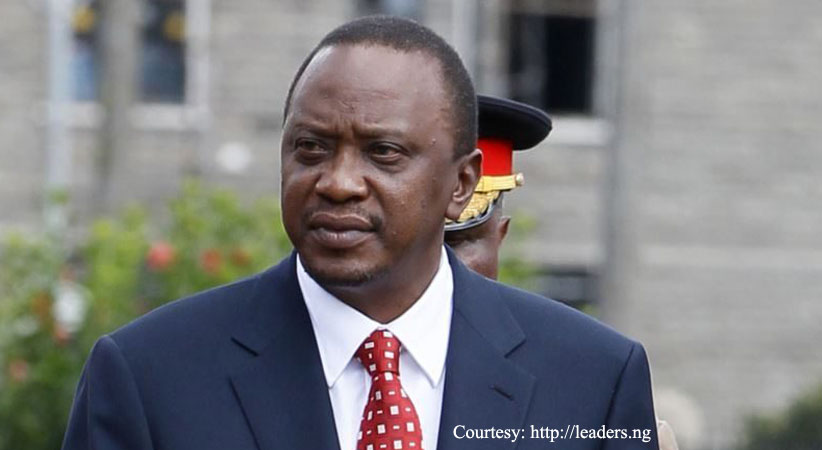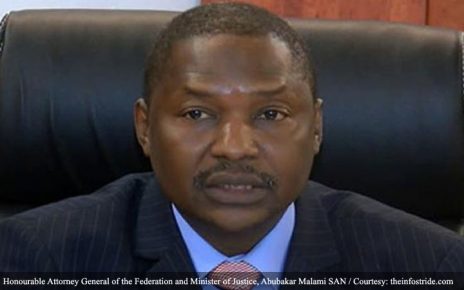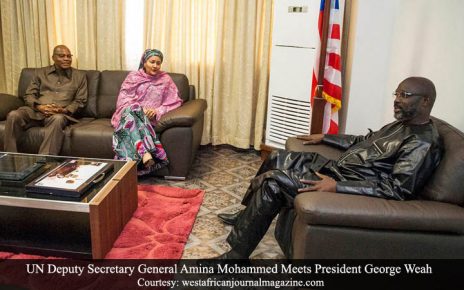Kenya had a very tumultuous history. Kenyans suffered unspeakable and horrific gross violations of human rights at the hands of the British colonial administration between 1895 and 1963. In order to establish its authority in Kenya, the colonial government employed violence on the local population on an unprecedented scale, including massacres, torture and ill-treatment and various forms of sexual violence.[1]
Kenya gained independence on 12 December 1963. However, the situation of human rights has not improved in independent Kenya. The Truth, Justice and Reconciliation (TJR) Commission constituted by Gazette Notice No. 8737 of 22 July 2009 concluded that successive governments of Kenya were responsible for numerous gross violations of human rights. In its findings, conclusions and recommendations published in 2013, the TJR Commission concluded that President Jomo Kenyatta (1963 to 1978) was responsible for numerous gross violations of human rights including killings, torture, collective punishment, and denial of basic needs (food, water and health care); assassinations of political opponents; arbitrary detention of political opponents and activists; illegal and irregular acquisition of land by the highest government officials and their political allies. The TJR Commission held the government of President Daniel Arap Moi (1978 to 2002) responsible for numerous gross violations of human rights including massacres; unlawful detentions, and systematic and widespread torture and ill-treatment of political and human rights activists; assassinations, including that of Dr. Robert Ouko; illegal and irregular allocations of land; and economic crimes and grand corruption. The TJR Commission concluded that the government of President Mwai Kibaki (2002 to 2008) was responsible for committing numerous gross human rights violations including unlawful detentions; extra judicial killings; and economic crimes and grand corruption. The Commission concluded that state security agencies, particularly the Kenya Police and the Kenya Army, have been the main perpetrators of bodily integrity violations of human rights in Kenya including massacres, enforced disappearances, torture and ill-treatment, and sexual violence.[2]
Kenya has been facing an ongoing terrorist threat from the Somalia-based terrorist group al-Shabaab, against which the Kenya Defense Forces have engaged in military operations in Somalia since 2011 as part of the African Union Mission in Somalia (AMISOM). Al-Shabaab terrorists conducted deadly attacks and guerrilla-style raids on isolated communities along the border with Somalia. In July 2017, al-Shabaab terrorists hijacked at gunpoint Public Works Principal Secretary Miriam El-Maawy and six others travelling in her motorcade in Lamu County. On 26 September 2017, ElMaawy died from injuries she sustained in the attack.[3]
Despite the threat of terrorism the Republic of Kenya created history on 13 April 2017 on which day President Uhuru Kenyatta assented to the Prevention of Torture Act 2017. The law that legally banned torture and cruel, inhuman, or degrading treatment or punishment commenced from 20 April 2017.[4]
Kenya had ratified the International Convention Against Torture and Other Cruel Inhuman or Degrading Treatment or Punishment (UNCAT) on 21 February 1997. It also accepted the Inquiry Procedure provided under Article 20 of the Convention. Since becoming a ratifying party, Kenya submitted three Periodic Reports on the Convention to the United Nations Committee on Torture. The Initial Periodic Report which was due since March 1998 was submitted on 6 June 2007 while the Second Periodic Report due in August 2012 was submitted in September 2012 and the Third Periodic Report due in May 2017 was submitted in August 2018.[5]
Legal framework for prohibition of torture and cruel, inhuman or degrading treatment or punishment
The ratification of the UNCAT had created legal and political obligations on the Republic of Kenya to comply with and implement the provisions of the Convention at the domestic level.
The Kenyan Constitution of 2010 sought to provide a framework to prohibit torture and cruel, inhuman or degrading treatment or punishment. The 2010 Constitution, among others, provides for the fundamental rights of freedom from torture, right to life, respect for and protection of human dignity and freedom and security of the person. Article 25 provides for freedom from torture and cruel, inhuman, or degrading treatment or punishment while Article 28 guarantees of respect and protection of human dignity; and Article 29 provides for the freedom and security of the person. Clause (d) of the Article 29 states that the freedom and security of the person includes not to be “subjected to torture in any manner, whether physical or psychological,” while Clause (e) prohibits corporal punishment; and Clause (f) categorically prohibits a cruel, inhuman or degrading treatment or punishment.[6]
However, there was no law until enactment of the Prevention of Torture Act, 2017 to give effect to the non-derogable right of freedom from torture and cruel, inhuman or degrading treatment or punishment as provided under the Kenyan Constitution as well as State’s obligations outlined in the Convention.
The Prevention of Torture Act 2017 provides a platform to apply articles of the 2010 Constitution, including: Article 25 on freedom from torture and cruel, inhuman, or degrading treatment or punishment; Article 28 on respect and protection of human dignity; and Article 29 on freedom and security of the person.[7]
‘Torture’ defined
The Prevention of Torture Act, 2017 provides a comprehensive definition of torture and other cruel, inhuman and cruel treatment and punishment in line with the Convention. Section 4 states: “For the purposes of this Act, “torture” means any act by which severe pain or suffering, whether physical or mental, is intentionally inflicted on a person for obtaining information or a confession from him or her or any other person; punishing him or her for an act he or she or any other person has committed, is suspected of having committed or is planning to commit; or intimidating or coercing him or her or any other person to do, or to refrain from doing, anything; or for any reason based on discrimination of any kind.
Similarly, Section 2 of the Prevention of Torture Act, 2017 provides: “cruel, inhuman and degrading treatment or punishment” includes a deliberate and aggravated treatment or punishment not amounting to torture, inflicted by a public officer or a person acting on behalf of a public officer against a person under their custody, causing suffering, gross humiliation or degradation to the person.”
Criminalizing and penalizing torture
Section 5 of the Prevention of Torture Act, 2017 criminalized torture. Sub-section (1) of the Section prescribes an imprisonment term not exceeding twenty five years on conviction for an offence of torture. Sub-section (2) of the provision provides for imprisonment for life on conviction for an offence of torture if the victim (of torture) dies as a result of torture referred to under subsection (1).
On conviction for an offence of ‘cruel, inhuman or degrading treatment or punishment’, Section 7 prescribes a fine not exceeding one million shillings or imprisonment for a term not exceeding fifteen years or both. Section 8 provides for the same quantum of punishment and fine on conviction of a person who “attempts, aids, abets, counsels, procures or conspires with another person” to commit an offence under this Act.
Information obtained through torture inadmissible as evidence and it is an offence to use such information
Sub-section (1) of Section 9 of the Prevention of Torture Act, 2017 renders any information, confession or admission obtained from a person by means of torture or cruel, inhuman or degrading treatment or punishment inadmissible evidence in any proceeding while Subsection (2) provides for “a fine not exceeding five hundred thousand shillings or to imprisonment for a term not exceeding seven years or to both” on conviction for an offence for knowingly using information which is obtained through torture or cruel, inhuman or degrading treatment or punishment. Subsection (3) provides that any information, confession or admission obtained by means of torture or cruel, inhuman or degrading treatment may be admitted as evidence only against a person accused of committing torture or cruel, inhuman or degrading treatment.
Freedom from torture made non-derogable
Section 6 of the Prevention of Torture Act, 2017 made the right to freedom from torture or cruel, inhuman or degrading treatment or punishment an absolute and non-derogable right. Sub-section (1) of the section provides that “No exceptional circumstances, including — (a) a state of war or a threat of war; (b) internal political instability; or (c) a public emergency, may be invoked as justification of torture or cruel, inhuman or degrading treatment or punishment.” Sub-section (2) bars invoking of an order from a superior officer or a public authority as justification for torture or cruel, inhuman or degrading treatment or punishment while Sub-section (3) shields a subordinate officer from disciplinary action or criminal prosecution arising on account of refusing to obey an order from a superior officer or public authority to commit, aid or abet in the torture or cruel, inhuman or degrading treatment or punishment.
No immunity or amnesty
Section 10 of the Prevention of Torture Act, 2017 categorically provides that no immunity or amnesty shall be granted to a person accused of the offence of torture or cruel, inhuman or degrading treatment or punishment.
Kenya National Commission on Human Rights given the duty to investigate allegations of torture and other violations of the Act
The Prevention of Torture Act, 2017 confers upon the Kenya National Commission on Human Rights (KNCHR) the duty to investigate alleged violations of the provisions of the Act upon receipt of a complaint or on its own initiative and the power to monitor the compliance by the State with international treaty obligations relating to torture and cruel, inhuman and degrading treatment and punishment.
Section 12 of the Act has entrusted the KNCHR numerous functions and powers including investigation of alleged violations of the provisions of this Act upon receipt of a complaint or on its own initiative; promotion of the right to freedom from torture and cruel, inhuman and degrading treatment and punishment pursuant to the provisions of the Constitution and this Act; monitoring the compliance by the State with international treaty obligations relating to torture and cruel, inhuman and degrading treatment and punishment; advise the Government on matters relating to the prevention of torture and cruel, inhuman and degrading treatment and punishment by public and private agencies etc.
Section 25 requires the KNCHR to submit an annual report to National Assembly and such report shall include an overall assessment of Government’s performance with regard to prevention of torture and cruel, inhumane and degrading treatment during the period under review by the Commission.
Protection of vulnerable witness
The Prevention of Torture Act 2017 also provides for the protection of vulnerable witness thus giving a new impetus for victims and their families to report cases of torture and pursue justice.
Section 16 provides that in criminal proceedings involving the alleged commission of an act of torture or other cruel, inhuman or degrading treatment or punishment, a court may, based on factors such as age; intellectual, psychological or physical impairment; trauma; cultural differences; the possibility of intimidation; race; religion; language etc declare a witness as vulnerable.
Sub-section (4) of Section 16 requires the court to direct that a vulnerable witness be protected by one or more of the following measures — “(a) allowing the witness to give evidence under the protective cover of a witness protection box; (b) directing that the witness shall give evidence through an intermediary; (c) directing that the proceedings may not take place in open court; (d) prohibiting the publication of the identity of the witness or of the family of the witness, including the publication of information that may lead to the identification of the witness or the family of the witness; or (e) any other measure which the court deems just and appropriate.”
Victim has enforceable right to obtain redress for an act of torture or other cruel, inhuman or degrading treatment or punishment
Section 17 of the Act provides for remedies to a victim of torture or other cruel, inhuman or degrading treatment or punishment to obtain redress from the state. Sub-section 1 state that a victim shall have an enforceable right to – “(a) adequate reparation, including restitution; (b) adequate compensation; and (c) rehabilitation.” Sub-section (2) recognizes the right of dependants of the victim to reparation in the event of the death of the victim as a result of an act of torture or other cruel, inhuman or degrading treatment or punishment while sub-section (3) provides that on conviction, the court may direct the convicted person to make restitution or compensate the victim for – (a) the costs of medical and psychological treatment; and (b) any other just relief.
Section 18 of the Prevention of Torture Act 2017 provides for a victim’s right to civil remedy for compensation. It states that notwithstanding any criminal proceedings instituted under this Act or any order made under section 17 as to restitution or compensation, a person may institute civil proceedings for compensation.
Medical treatment and counselling of victim
Section 19 provides that a court, before which any proceeding under this Act is pending, may at the request of a victim of torture or cruel, inhuman or degrading treatment or an intermediary, grant an order for the treatment or counselling of a victim of torture or cruel, inhuman or degrading treatment or punishment. The expenses so incurred for the treatment or professional counselling of a victim shall be charged on the Victim Protection Trust Fund established under section 27 of the Victim Protection Act, 2014.
Torture remains endemic in Kenya. During 2015-2016, Kenya National Commission for Human Rights reported 76 cases of torture and disappearance at the hands of Kenya Defence Forces (KDF).[8]
The Prevention of Torture Act is a step in the right direction to combat torture in the country.
Endnotes:
[1]. Report of the Truth, Justice and Reconciliation Commission, Kenya, Vol. IV, 2013; available at: http://knchr.org/Portals/0/Reports/TJRC_Volume_4.pdf
[2]. Ibid
[3]. US STATE DEPARTMENT 2017 HUMAN RIGHTS REPORT ON KENYA; available at: https://www.state.gov/documents/organization/277255.pdf
[4]. Kenya’s Prevention of Torture Act (No. 12 of 2017); available at: http://kenyalaw.org/kl/fileadmin/pdfdownloads/Acts/PreventionofTortureAct2017.pdf
[5]. Reporting status for Kenya under the UNCAT, available at: https://tbinternet.ohchr.org/_layouts/TreatyBodyExternal/Countries.aspx?CountryCode=KEN&Lang=EN
[6]. See Constitution of Kenya, 2010; available at: http://extwprlegs1.fao.org/docs/pdf/ken127322.pdf
[7]. Ibid
[8]. Annual Report 2015/2016 of the Kenya National Commission on Human Rights; available at: http://www.knchr.org/Portals/0/AnnualReports/Annual_Report_2015_2016.pdf?ver=2017-09-20-163245-917



